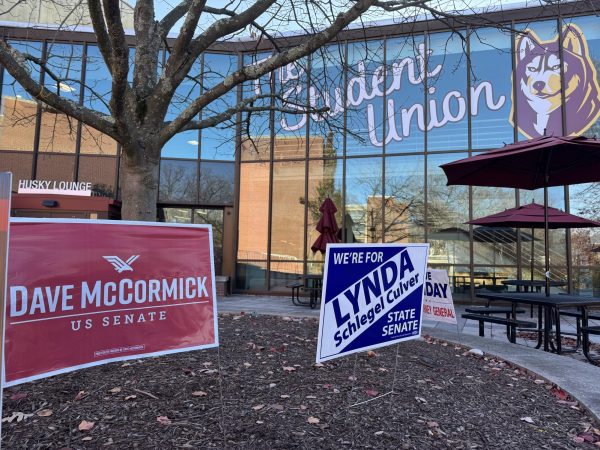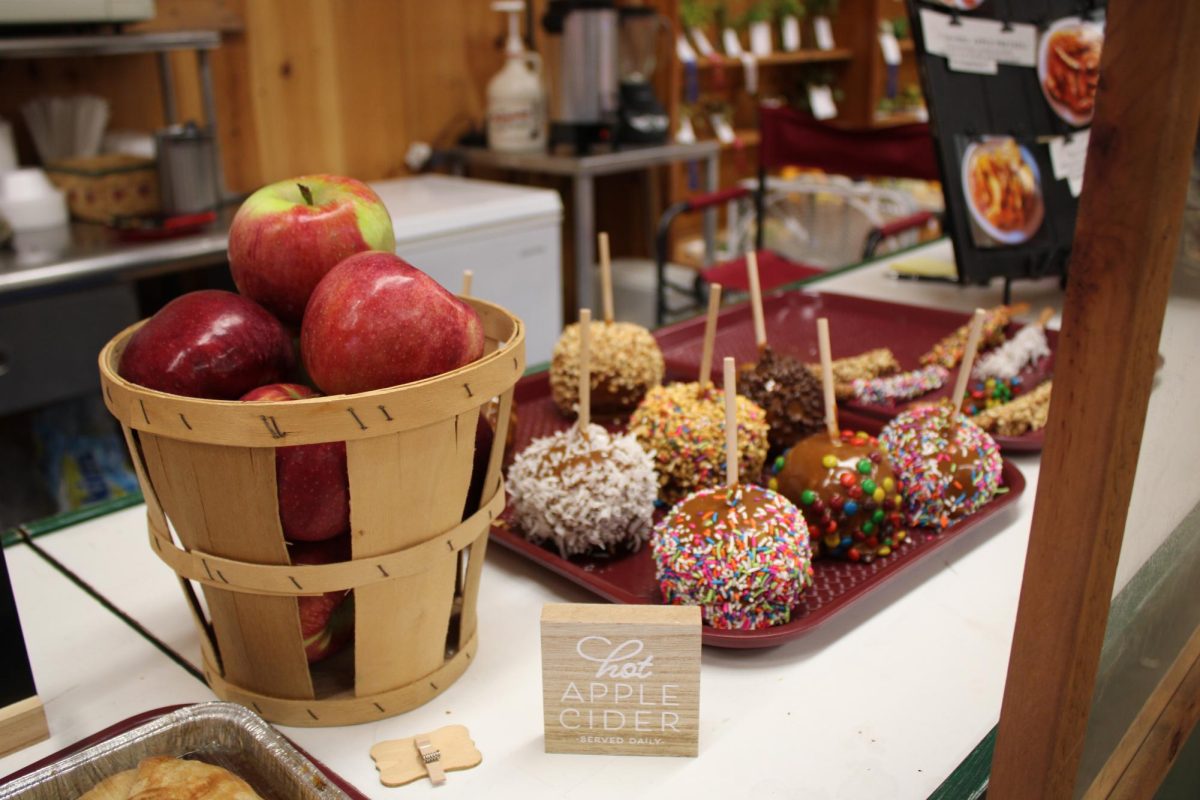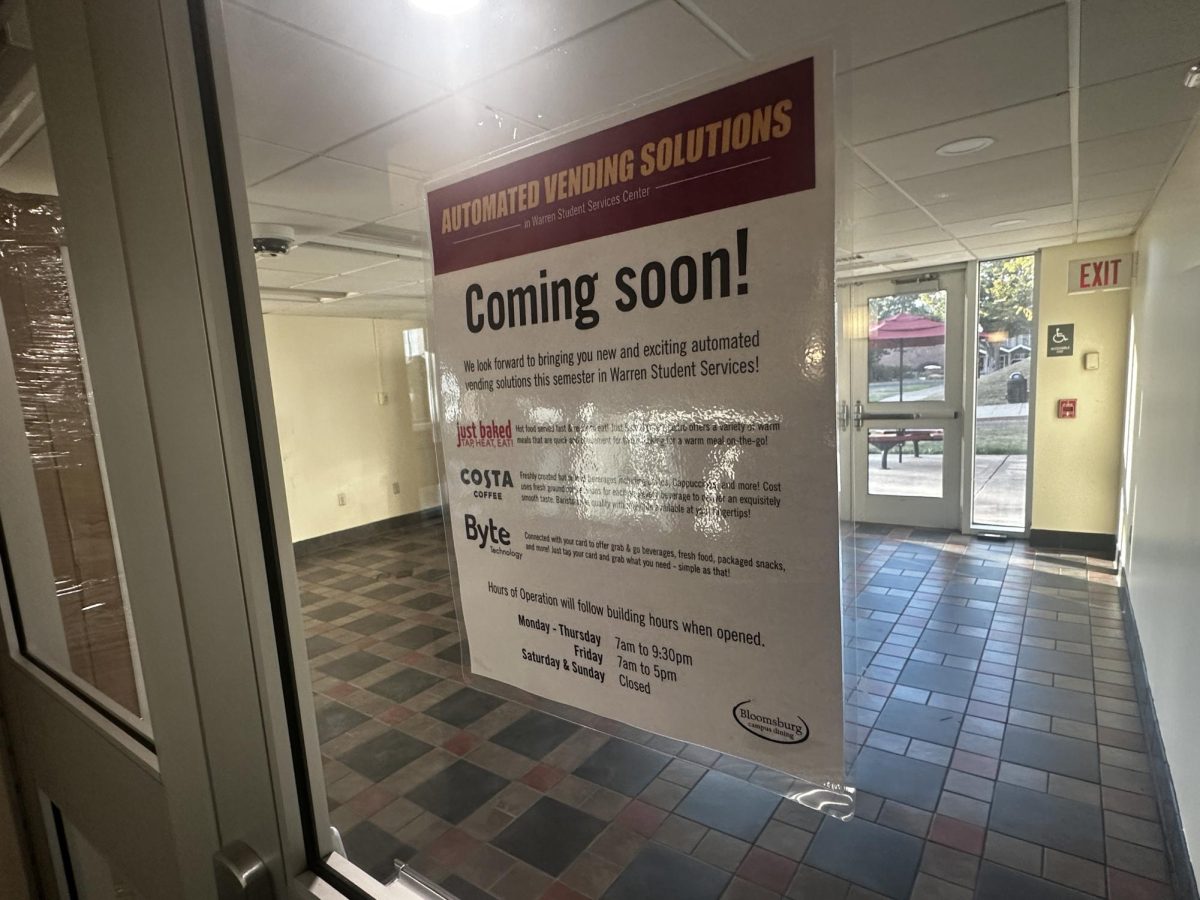Students on the Bloomsburg Campus were digesting Donald Trump’s victory in the 2024 presidential election this week. Some expressed optimism for a second Trump term. Others were trepidation.
But both supporters and opponents of the president-elect said they worry about the divisiveness in our country and how people treat each other on social media. Student reporters from the Journalism Workshop fanned out on campus and in town Wednesday and Thursday to gather the reactions from young voters, who were expected to play a pivotal role in the presidential race.
Of students living on campus, 64.42 percent of students cast their ballots for Harris, according to Tim Pelton, the Civic Engagement Coordinator. Some of those supporters found themselves searching for answers this week. Others were upset at their fellow Americans.

More than 20 people approached for interviews either declined to speak or did not want their names attached to an article that would be published. Some say they would be concerned for their safety if they shared their opinions in this environment, while others cited worries that it could harm their future employment prospects.
Here are some thoughts from young voters around campus.
“I guess I didn’t know who would win this election,” Electronic Engineering major, Gabe Allen, states, “but I did vote, and I voted for Trump.”
“With his reinstatement, I hope Trump focuses on recovering the economy. I hope he has the overtime tax removed, like he promised; and, hopefully, put the needs of our country’s interest first, rather than focusing it upon others.”
“I feel disgusted and sad that I live in a state that is very uneducated about who they choose for [president], but I was not surprised,” senior media and journalism student Leah Corbett said.
Another junior, named Erin Clark, admits she also voted for Trump and the election turned out just the way she had expected. Yet, when discussing her thoughts on America’s future, she imagines it going in several different ways.
“If people put aside their differences, whether they voted for Trump or Harris, and come together- like how our country was designed to work- then the future of the United States is going to be a positive and free country.”
“If Democrats and Republicans decide they no longer want to work together under one man or woman, then the United States will be in trouble. There will be no liberty, and no justice… for anybody.”
Clark hopes that Trump will keep his word regarding what issues he will be resolving during his presidency. Those aspects include how Trump plans to handle the overwhelming amount of undocumented migrants, and how Trump plans to end the war with Ukraine.
Kenneth Grains, a business management major originally from Columbus Ohio, admitted he voted in the election too. However, whom he voted for is still unknown.
“Internally, we need to focus on decreasing the deficit and putting more money in the pockets of the middle class. On a global level, we need to ensure we remain as a global superpower militarily, and economically, and continue to build up NATO and our alliances.”
Grains hopes that with Trump re-elected as President, Trump will focus on the inflation crisis at hand, and hopes to keep Americans in NATO.
“I also voted in this election, and it turned out just the way I imagined.”
Pigging back off of Grains and Clark, another student, sophomore Brady Wilson, also hopes President Trump will take control of the inflation and the border control crisis.
“I do feel like we are in a way better position now than we were before the election, and I am curious if Trump will start drilling natural resources on U.S. soil instead of importing it.”
“The outcomes of the election always come as a shock to me honestly. I think it took me a second to fully believe it but truly, I think either option would have shocked me,” states junior Alivia Sherman.
Sophomore, Peyton Poticher, stated that the reason why she didn’t vote was because she didn’t know who to vote for. Although Poticher admits she missed the deadline to vote, she had been on the fence about either candidate since the start of the election.
“This election divided Americans by a landslide, and I honestly expected a lot of hatred from Americans on all sides in terms of who was going to win this election.”
Poticher believes that both candidates did have promising policies, as well as not-so-promising policies.
“I am a woman. So, some of Kamala’s policies, I would love to see how she executes them… but I am also a student who will be living on my own and I would love to see how Trump would execute those policies to help this generation as we transfer into adults.”
As a non-voter, Poticher felt pulled between the candidates, “Personally, it was hard to hard to make a decision on who I would vote for because of how important each policy is.”
“I really did have hope that Kamala would come out on top, especially because our generation was going to be able to vote but unfortunately, I am not surprised”, stated junior speech pathology major Emma Wilkinson. “I don’t think it should be up to the government officials, mostly men, to be able to tell women what to do with their bodies….I am lucky to be from New York, which passed Prop 1, but not everyone has that luxury.”
Annie Presti, a chemistry major, shared the feeling of shock about the election, but for a slightly different reason. “I did not expect Trump to win, I just thought it would be an even split. I thought since Gen Z was voting, there would be a lot more push to vote for her,” she said.
Nick Zwaboski, a freshman pre-med major, and Jack Kaiter, an undecided freshman, stated that they were very pleased with the election outcome. Their major motivator to vote was concerns about the economy, affordable housing, and the prices of gas and food. Another concern was America’s role in world affairs, such as the ongoing war in Ukraine. Zwaboski and Kaiter believe that the U.S. should be feared, and that it will be under a Trump presidency.
“I can’t see another country fearing Biden or Kamala”, said Kaiter.
However, Zwaboski expressed some frustration with the election process, believing it to be more like a popularity contest than anything else. Personality was too much of a determinative factor in this election, according to him, when the focus should have been on policies.






















